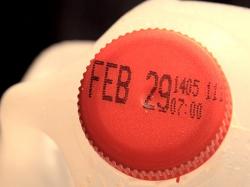Study: Manufacturers Too Cautious With Best-Before Dates
May 21, 2010 | 1 min to read

Food manufacturers are being “far too cautious” when it comes to setting best-before dates for many ambient food products, according to a leading academic in the field of sensory shelf-life testing.
Speaking at Leatherhead Food Research’s food innovation day last week, Dr Guillermo Hough said that consumer testing on products at the end of their shelf-life typically revealed that “many could have had their shelf lives extended”.
Hough, a research fellow at the Instituto Superior Experimental de Tecnologa Alimentaria in Argentina, said that many products had a relatively low rejection rate from consumers at the end of their shelf-life, which suggested manufacturers were being overly conservative with best-before dates and good food was going to waste.
Given that many products were typically consumed well before their best-before dates, even a 50% rejection rate at the end of a product’s shelf-life might be acceptable given the small numbers of consumers that would eat the product at this late stage, he added.
To read the rest of the story, please go to: Food Navigator.
